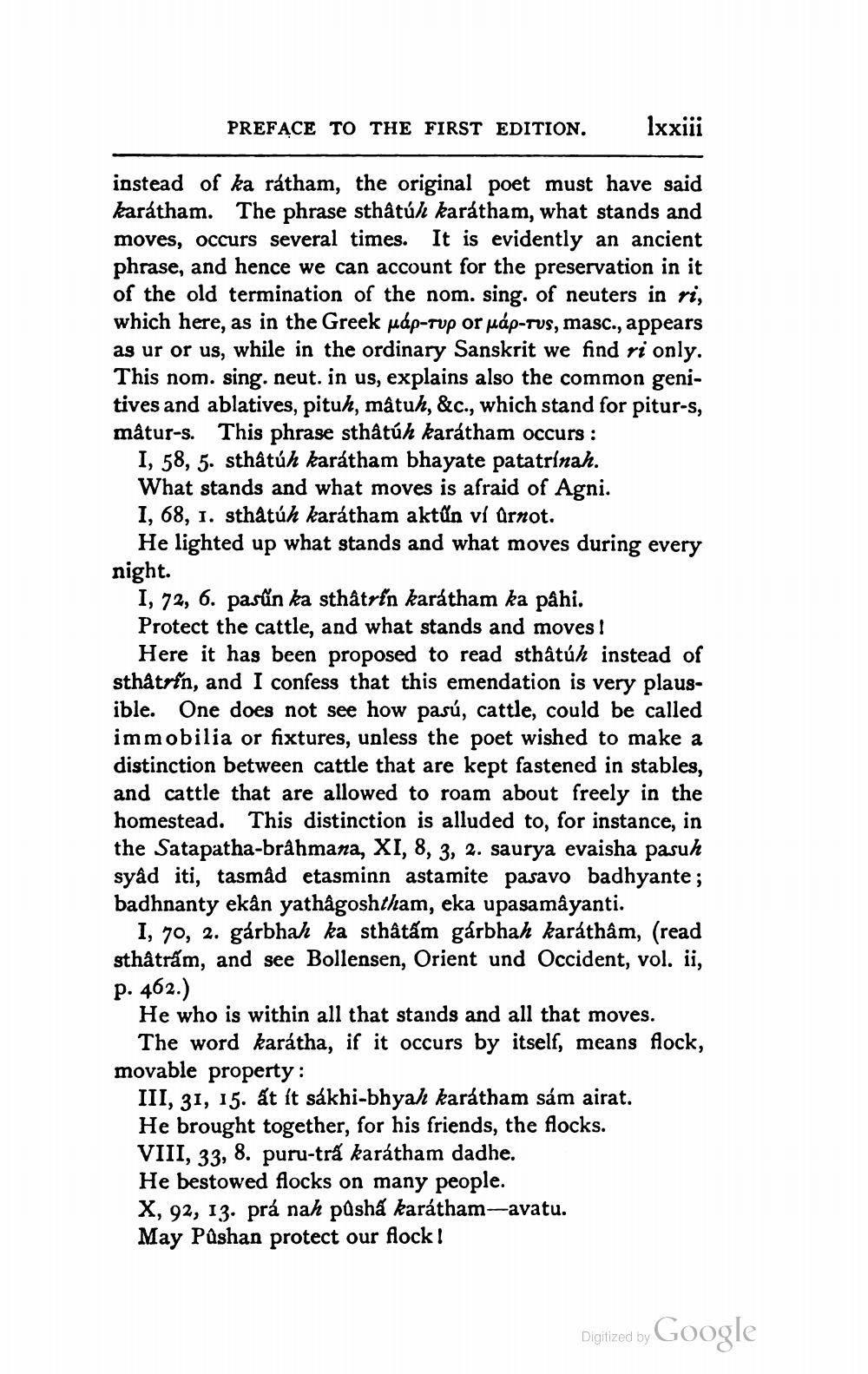________________
PREFACE TO THE FIRST EDITION.
lxxiii
instead of ka rátham, the original poet must have said karátham. The phrase sthâtúl karátham, what stands and moves, occurs several times. It is evidently an ancient phrase, and hence we can account for the preservation in it of the old termination of the nom. sing. of neuters in ri, which here, as in the Greek udp-tup or páp-tus, masc., appears as ur or us, while in the ordinary Sanskrit we find ri only. This nom. sing. neut. in us, explains also the common genitives and ablatives, pituh, mâtuh, &c., which stand for pitur-s, matur-s. This phrase sthåtúh karatham occurs :
I, 58, 5. sthậtúh karátham bhayate patatrinah. What stands and what moves is afraid of Agni. I, 68, 1. sthåtúh karátham aktűn ví Arnot.
He lighted up what stands and what moves during every night.
1, 72, 6. pasűn ka sthâtrfn karátham ka pâhi. Protect the cattle, and what stands and moves!
Here it has been proposed to read sthâtúh instead of sthåtrứn, and I confess that this emendation is very plausible. One does not see how pasú, cattle, could be called immobilia or fixtures, unless the poet wished to make a distinction between cattle that are kept fastened in stables, and cattle that are allowed to roam about freely in the homestead. This distinction is alluded to, for instance, in the Satapatha-brahmana, XI, 8, 3, 2. saurya evaisha pasuh syåd iti, tasmad etasminn astamite pasavo badhyante; badhnanty ekân yathagoshtham, eka upasamayanti.
I, 70, 2. gárbhah ka sthâtâm gárbhah karáthâm, (read sthåtrăm, and see Bollensen, Orient und Occident, vol. ii, p. 462.)
He who is within all that stands and all that moves.
The word karátha, if it occurs by itself, means flock, movable property:
III, 31, 15. åt ít sákhi-bhyah karátham sám airat. He brought together, for his friends, the flocks. VIII, 33, 8. puru-trå karátham dadhe. He bestowed flocks on many people. X, 92, 13. prá nah pusha karátham--avatu. May Půshan protect our flock !
Digized by Google




